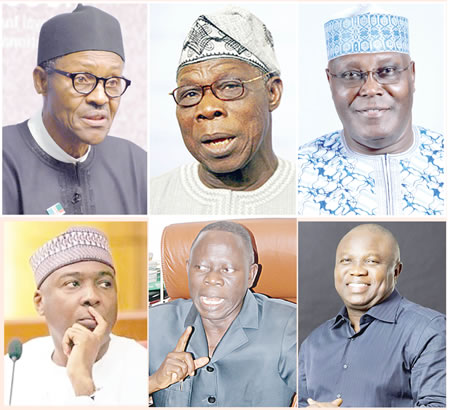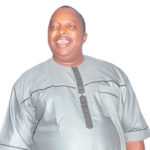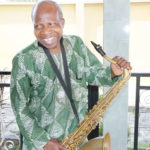Renowned American media executive and richest black woman, Oprah Winfrey, it was who said that a “year’s end is neither an end nor a beginning but a going on, with all the wisdom that experience can instill in us…,” capturing the endless flow of life’s events as a year rolls into another in an a continuous cycle.
Forty-eighty hours to the beginning of a New Year, many political happenings of 2018 in Nigeria, which appear to have been concluded, will shape many events in the 2019 election year. An attempt at a recap of the events of the outgoing year that affected the politics of the country and made their ways into public discourse would show how, beginning from January 2018, tension flew high in the nation’s body-politic and the nation’s close to 20-years-old democracy either became threatened or strengthened following the developments.
The year 2018 had proved to be one that would be exciting and filled with great dramas, as the third week of January gave a look-in into what would become a full-fledged battle for the soul of the country ahead of the 2019 general election. Though an incident that was neither novel nor uncommon, the publication of a letter written to President Muhammadu Buhari by a former president of the country and a man who has become renowned for letter-writing to those in authority, Chief Olusegun Obasanjo, headlined newspapers and made the political space saturated with discourses on the issue, setting the stage for what has now become a battle of the anti and pro-Buhari forces ahead of next year’s presidential election.
2018: The year of the letters
January 23: Former President Obasanjo released a letter entitled: “The way out: A clarion call for Coalition for Nigeria Movement,” in which he highlighted the ills of the Buhari administration, advising the president to go home and rest in 2019.
According to him, his government had been dogged by allegations of nepotism, poverty, insecurity, poor economic management, nepotism, gross dereliction of duty, condoning misdeeds, lack of progress and hope for the future, lack of national cohesion and poor management of internal political dynamics and widening inequality. That letter had generated heated responses and debates for three months, with the only responses from Buhari from his Minister for Information and some supporters until April 2018, when Buhari first commented on the letter.
Obasanjo had, in the letter, advocated the establishment of a Coalition for Nigeria, a movement, which he said would attempt to rescue the failing ship of the nation.
February 4: Less than two weeks after Obasanjo’s letter, another bombshell of a letter hit the polity. This time, it was from another General, Ibrahim Badamasi Babangida. In that letter, Babangida lamented the turn of events in the country and the leadership question, also calling on Buhari not to contest the 2019 election. Expectedly, that letter had also generated ripples in the body-politic with several mixed reactions.
July 19: Obasanjo wrote another letter touching on Buhari, only that this time; it was addressed to the Northern elders. The letter, which was delivered to the elders during a summit of the Northern Elders’ Forum (NEF), had stated that the Buhari administration had become confused and got to its wit’s end. In that letter, the former president noted that under Buhari’s watch, “the nation is being left divisively and perilously to drift.”
Saraki and the storm
June 4: Of the majors issues that took place in the politics of Nigeria in 2018, the travail of the Senate President, Dr Bukola Saraki, remained a central issue. From his long battles with the Code of Conduct Tribunal (CCT), which began three years and terminated at the Supreme Court to his running battle with the Presidency over the manner he emerged the president of the Senate; Saraki faced 2018 amid great storms.
On June 4, he was allegedly implicated by suspects of the Offa robbery, which took place two months earlier. As expected, there had been claims and counter-claims between the two parties, with the issue left unresolved till the end of the year.
June 14: In what appeared like a dramatic end to a raging storm, the CCT discharged and acquitted Saraki, noting that the prosecution failed to prove its case against the senator.
But these were not the end of the storm for the former Kwara State governor. He continued to face opposition from his former party, APC until he finally moved out of the party.
From failed impeachment attempts to unsuccessful efforts to incriminate the number three man and finally the defeat of his candidate in the House of Representatives rerun in Kwara State, Saraki faced many battles and appears to be ending the year with only a few losses.
When June 12 came back to life
On June 12, 2018, a date set aside by a few states of the South-West to commemorate the June 12, 1993 election that produced Chief Moshood Kasimawo Olawale Abiola as the winner of the presidential election, took a different dimension as it got its way into the national politics with President Buhari officially honouring those who played active role in the election and the struggle that followed.
The major honour for the day, which most Nigerians recognised as the turning point for the country’s democratic struggles, came with the official declaration of the day as the country’s democracy day and a day of national holiday instead of May 29. Abiola, Professor Wole Soyinka, Babagana Kingibe and the late Gani Fawehinmi were honoured with national honours as well as other awards.
The election that left a gov in pains
Not a few Nigerians will remember the controversial former governor of Ekiti State, Mr Ayodele Fayose, for his bold and courageous opposition of the president, being the lone ranger in the troubled days when the opposition lost its voice and the many theatrics of a man loved and hated by people.
But for most Nigerians, Fayose would be remembered for his last days in office and how he bestrode Ekiti State like a political colossus, selling the candidature of Professor Kolapo Olusola, the PDP standard-bearer in the July 14 governorship election. At a point, the governor appeared too convinced that the mission to choose a successor was a fait accompli until the last minute when he faced the fire powers of the ruling APC and was allegedly physically roughened up by security agencies and psychologically roughened up by the defeat that ended the reign of the PDP in the state. In all these, one line would resonate with Nigerians; “I am in pains,” which the governor, with neck collar, said after his encounter with security agents.
The defection blues
As it is often the case in years preceding a general election, movement of politicians from one political party to the other dominated 2018, with most of the movements taking place in the National Assembly where members who lost out in the power plays in their parties or states switched allegiances. There, however, were defections of key politicians, which were considered and ground-shaking, with notable politicians including governors and presiding officers of the National Assembly moving from PDP to APC and vice versa.
The defections of Governors Samuel Ortom of Benue, Abdulfatah Ahmed of Kwara, Aminu Waziri Tambuwal of Sokoto as well as those of the Senate President and the Speaker of the House of Representatives, Honourable Yakubu Dogara and former Kano State governor, Rabiu Musa Kwankwanso to the opposition Peoples Democratic Party (PDP) as well as the movement of the Senate Minority Leader, former Governor Godswill Akpabio, to the APC had headlined news in the country in the outgoing year.
Also on the floor of the National Assembly, senators and members of the House of Representatives switched allegiances from one party to the other, with many of them even moving to some of the smaller parties.
In the states, losers of governorship and other primaries had also joined in the defection blues, with the APC in Ogun, Oyo, Imo and Kano States being most hit by the defections as notable politicians and governorship aspirants abandoning the ruling party to pursue their ambitions in the opposition parties.
National Assembly lock-up: The palace coup that never happened
August 7: On August 7, 2018, shortly after the defections of Saraki and Dogara to the PDP, Nigerians woke up to read and watch the news of the Department of State Security (DSS) laying a siege to the National Assembly and preventing lawmakers from gaining access into their offices. A major confrontation had ensued between the opposition lawmakers and the security men, with the country portrayed in bad light before the international community following what was described as a failed attempt to unseat Saraki and Dogara.
The year of vote buyers, sellers and a new electoral record
Nigerians are not strangers to inconclusive elections; they became used to the words in 2015 following the governorship election in Kogi. They were also not strangers to vote buying; the act was on display in Ondo about a year earlier. However, the two developments came to town in Osun dressed in vivid toga and almost derailing the country’s democracy. As the Osun State electorate filed out on September 22, 2018, to elect their next governor, vote buying and selling took over the landscape, with allegations of widespread vote buying traded between the APC and the PDP. In the end, the election was declared inconclusive, with a rerun of the exercise in seven polling units producing Governor Gboyega Oyetola of the APC as the winner of the election, which is adjudged as having the least margin of victory in the history of governorship elections in Nigeria.
Oshiomhole: An ode to a comrade chairman
Less than a year to the 2019 general election, the ruling APC had faced a set of crisis following the distrust between some key leaders of the party including former Governor Bola Tinubu and its national chairman, Chief John Odigie-Oyegun. In order to navigate the waters ahead, the ruling party had come up with a plan to replace its chairman. To take that position and guide the party into the elections, a former governor of Edo State, Comrade Adams Oshiomhole was elected unopposed at a convention of the APC in June.
Six months after that decision, however, many waters have passed under the APC Bridge, with the national chairman already involved in a multi-faced war with key stakeholders of the party including Governors Ibikunle Amosun, Abdulazeez Yari and Rochas Okorocha. These battles will outlive the outgoing year, as some of the actors have vowed to make it a fight to the finish ahead of the elections.
The primaries blues
As expected, the period of party primaries is a time for intrigues, horse-trading and serious political undercurrents underpinned by betrayals, realignments and surprises. The parties’ primary elections in the outgoing year did not disappoint or fall below these standards. From the PDP, which unlike the past, conducted the most rigorous and internationally-adjudged open and credible primaries, which produced Alhaji Atiku Abubakar, a former vice-president of Nigeria, as the presidential standard-bearer, albeit amid allegations of huge dollarisation to the APC primary where an announcement of 14.8 million votes was made to complete the coronation of President Buhari as the standard-bearer of the APC, the primaries provided topics of discourse for weeks in the outgoing year.
The points of interests in the primaries, however, are the states. Beginning with Lagos State, where a sitting governor was outsmarted and outwitted by the APC and Senator Tinubu in what analysts have described as a great humiliation, to Ogun State where another governor was left to rue his losses following his failure to anoint a successor, the outgoing year was filled with dramas.
In Zamfara and Rivers states, the developments were different, but the APC faces the likely situation of not fielding candidates for the governorship elections in the state following the mismanagement of its primary elections.
The year of coalition and third force that failed to fly
Also in the outgoing year, the talks about a third force had dominated the polity for a long time, with many Nigerians looking forward to a sort of grand political alliance similar to the APC in the pre-2015 general election days. With former President Obasanjo having also hinted at the creation of what he described as the Coalition for Nigeria Movement, the expectations had been huge. However, the idea appeared to have recorded a little success, as it appeared to have been too close to election, with different political parties laying claims to being the third force, while the coalition of political parties under the aegis of the Coalition of United Political Parties (CUPP), which has adopted Atiku as its candidate, being the only thing similar to a coalition in the country.
A battle without end
In what may go into the annals of history as the climactic end to an unending face-off between the executive and the legislature in the country under President Buhari, 2018 was a year of misunderstanding and endless struggles between Buhari and the National Assembly. Though it started since the inception of the administration, the face-off took different turns in the outgoing year, with constant opposition between the government and the National Assembly leadership, several failed attempts to effect a leadership change in the legislature, the rejection of the amended Electoral Act by the president and finally the booing of the president outlining what would remain an unresolved issue as the New Year is ushered in. With the Electoral Act matter still undecided and the defence of the 2018 budget still to come, there can be no doubts that landmines would still go off in 2019, as the two arms of government continue the battle of brawns and brain and this will largely shape political developments before and shortly after the 2019 polls.
The terror continues…
In 2018, killings by herdsmen terrorists and general insecurity headlined the news on a daily basis, with most of the developments often linked to politics or given political colouration by the opposition party with the intention of discrediting the government or explained away by a government desirous of hiding its failings in the area of security. These issues had been major points raised by Chief Obasanjo in his letter and they continued to affect different parts of the country even till now, with analysts already stating that they would remain major campaign points against the Buhari government.
And the restructuring songs never stop
All through 2018, the calls for restructuring, especially from leaders of Southern Nigeria and a few voices from the North continued to ring loud. From the first of the year until now, agitators for the restructuring of the country have not stopped the clamour for a review of the structure of the country through devolution of powers, fiscal federalism, resource control and change in form of government, among others. These agitations, however, continue to fall on the deaf ears of the government, despite half-measure efforts to address the issue at one time or the other.
The invasion: Dino ding-dong with police, Ekweremadu’s close shave
Though these would ordinarily have passed for a small issue given that it concerns individuals and the police authorities, the ding-dong between the police and Senator representing Kogi West, Dino Melaye, which had its latest scene played out on Friday, December 28, when the police laid siege to his house in Abuja on one hand and the invasion of the house of the Deputy Senate President, Ike Ekweremadu by the police and DSS in July on the other, could not but make it to the front burners on issues that shaped 2018. This is because of the fact that the duo were opposition figures against the Federal Government in the Senate and key players in the executive-legislature face-off that has beleaguered this government for too long.
2018: Going…, going…
In two days, Nigerians will wave their final goodbye to 2018 but not some of the issues that have dogged the outgoing year. Some of these critical issues, ranging from those surrounding the presidential candidates to others affecting the economy and security of the country will become magnified as the general election approaches.
The herdsmen killings will likely not stop and so will the advocates of restructuring not keep their peace until the elections are concluded and a new government ushered in and even beyond. The issues of the Federal Government’s fight against corruption and the allegations of selectiveness as well as alleged witch-hunt of the opposition, which headlined the news in 2018, will also remain major issues in the early part of 2019; so will the allegations of vote buying through Tradermoni and other efforts by the current government, which the opposition tries to pooh-pooh.
Indeed, 2018 will end but some of the issues that shaped and are still shaping it will not; they will only transform into other issues or just follow the change in time to become issues of the New Year.
WATCH TOP VIDEOS FROM NIGERIAN TRIBUNE TV
- Let’s Talk About SELF-AWARENESS
- Is Your Confidence Mistaken for Pride? Let’s talk about it
- Is Etiquette About Perfection…Or Just Not Being Rude?
- Top Psychologist Reveal 3 Signs You’re Struggling With Imposter Syndrome
- Do You Pick Up Work-Related Calls at Midnight or Never? Let’s Talk About Boundaries






